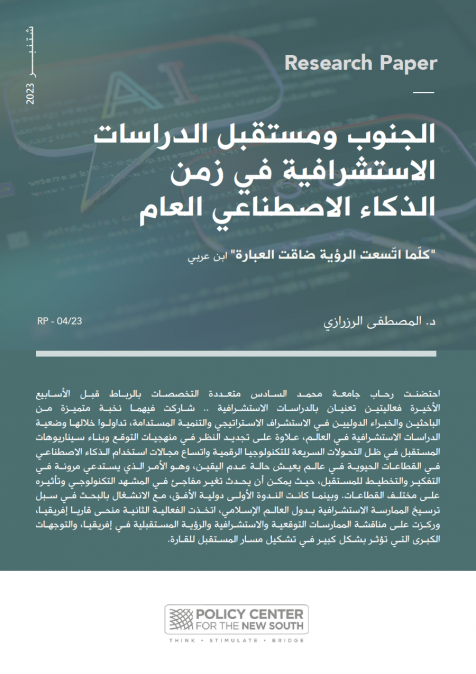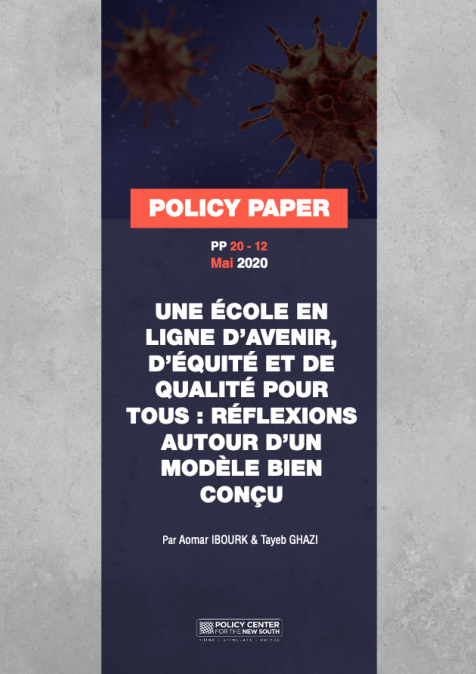Publications /
Research Paper
احتضنت رحاب جامعة محمد السادس متعددة التخصصات بالرباط قبل الأسابيع الأخيرة فعاليتين تعنيان بالدراسات الاستشرافية .. شاركت فيهما نخبة متميزة من الباحثين والخبراء الدوليين في الاستشراف الاستراتيجي والتنمية المستدامة، تداولوا خلالها وضعية الدراسات الاستشرافية في العالم، علاوة على تجديد النظر في منهجيات التوقع وبناء سيناريوهات المستقبل في ظل التحولات السريعة للتكنولوجيا الرقمية واتساع مجالات استخدام الذكاء الاصطناعي في القطاعات الحيوية في عالم يعيش حالة عدم اليقين، وهو الأمر الذي يستدعي مرونة في التفكير والتخطيط للمستقبل، حيث يمكن أن يحدث تغير مفاجئ في المشهد التكنولوجي وتأثيره على مختلف القطاعات. وبينما كانت الندوة الأولى دولية الأفق، مع الانشغال بالبحث في سبل ترسيخ الممارسة الاستشرافية بدول العالم الإسلامي، اتخذت الفعالية الثانية منحى قاريا إفريقيا، وركزت على مناقشة الممارسات التوقعية والاستشرافية والرؤية المستقبلية في إفريقيا، والتوجهات الكبرى التي تؤثر بشكل كبير في تشكيل مسار المستقبل للقارة.







